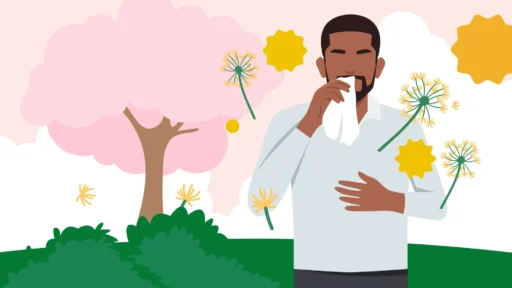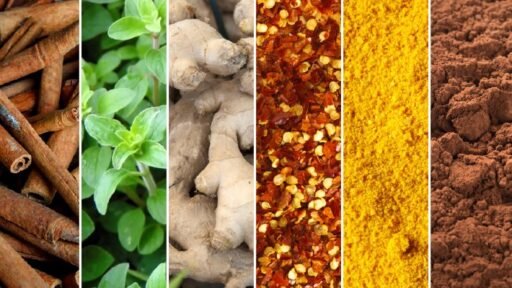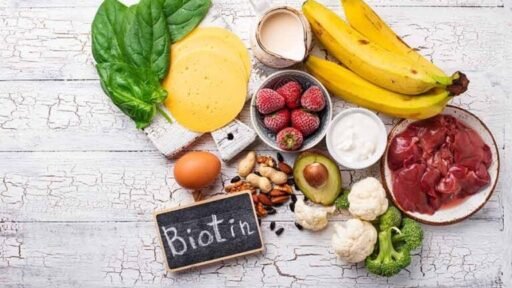Spring brings blooming flowers and sunny days, but for many, it also means sneezing, itchy eyes, and congestion from seasonal allergies. Instead of relying on medications with side effects, natural supplements can ease symptoms effectively. Nexus Mag reveals the best supplements for spring allergies, plus tips to enjoy the season symptom-free!
Understanding Spring Allergies
Spring allergies, also known as hay fever or allergic rhinitis, are triggered by pollen from trees, grasses, and flowers. When your immune system overreacts to these allergens, it releases histamine, causing symptoms like sneezing, nasal congestion, and watery eyes. Natural remedies, including supplements, can reduce inflammation and support your body’s defenses.
Top Supplements for Spring Allergies
These supplements target allergy symptoms naturally, offering relief without drowsiness:
1. Quercetin
A potent flavonoid found in apples, onions, and green tea, quercetin acts as a natural antihistamine. It stabilizes mast cells, reducing histamine release.
Benefits: Eases sneezing, itching, and runny nose.
How to Use: Take 500–1,000 mg daily as a supplement, or eat quercetin-rich foods.
Stat: Studies show quercetin can reduce allergy symptoms by up to 40% in some cases.
2. Vitamin C
This antioxidant reduces inflammation in the upper respiratory tract caused by pollen.
Benefits: Shortens cold duration and alleviates allergy-related congestion.
How to Use: Consume 1,000–2,000 mg daily via supplements or foods like oranges, bell peppers, and berries.
Tip: Pair with bioflavonoids for enhanced absorption.
3. Butterbur
A herbal remedy, butterbur is as effective as over-the-counter antihistamines without sedation.
Benefits: Reduces nasal congestion and itchy eyes.
How to Use: Take 50–100 mg standardized extract daily; ensure it’s labeled “PA-free” to avoid liver toxicity.
4. Stinging Nettle
This herb reduces inflammation and histamine production.
Benefits: Relieves sneezing, congestion, and sinus pressure.
How to Use: Drink nettle tea (1–2 cups daily) or take 300–600 mg capsules.
5. Elderberry
Rich in antioxidants, elderberry boosts immunity and fights viruses that exacerbate allergy symptoms.
Benefits: Shortens cold duration and supports sinus health.
How to Use: Take 10–15 ml elderberry syrup daily or 300–600 mg capsules.

Other Natural Remedies for Spring Allergies
Combine supplements with these strategies for maximum relief:
- Local Raw Honey: Daily intake (1 tsp) exposes you to small amounts of local pollen, potentially desensitizing your immune system over time.
- Neti Pot: Rinse nasal passages with a saline solution to remove pollen and mucus. Use distilled or sterile water for safety.
- Ginger: Its anti-inflammatory properties soothe sore throats and congestion. Drink ginger tea or add fresh ginger to meals.
- Zinc: Supports immunity and may reduce allergy severity. Take 15–30 mg daily with food.
- Steam Inhalation: Add eucalyptus or peppermint oil to hot water and inhale to clear sinuses.
9 Tips to Avoid Allergy Triggers
Minimize exposure to pollen with these practical steps:
- Check Pollen Counts: Use apps like the National Allergy Map to avoid outdoor time on high-pollen days.
- Stay Indoors on Windy Days: Go out after rain, which clears pollen from the air.
- Avoid Lawn Work: Mowing or gardening stirs up pollen.
- Keep Windows Closed: Prevent pollen from entering your home.
- Shower Before Bed: Wash off pollen from hair and skin.
- Change Clothes: Swap outdoor clothes after being outside.
- Dry Laundry Indoors: Pollen sticks to clothes hung outside.
- Remove Shoes: Leave them at the door to avoid tracking pollen.
- Wear Protection: Use sunglasses and a hat to shield eyes and hair.
Supporting Overall Spring Health
Spring also brings colds, sinus infections, skin irritations, and fatigue. These natural remedies complement allergy relief:
- Colds: Echinacea (tea or 300 mg capsules) and garlic (raw or 600 mg supplements) boost immunity and fight viruses.
- Sinus Infections: Apple cider vinegar (1 tbsp in water) and horseradish (1 tsp fresh) clear mucus.
- Skin Irritations: Aloe vera soothes sunburns, chamomile tea compresses reduce redness, and bentonite clay calms insect bites.
- Fatigue: Maca root (1 tsp in smoothies) and rhodiola (200–400 mg) boost energy naturally.
FAQs About Supplements for Spring Allergies
Which supplements are best for spring allergies? Quercetin, vitamin C, butterbur, stinging nettle, and elderberry are top choices.
Can local honey really help allergies? Yes, small doses of local pollen in raw honey may reduce sensitivity over time.
Are there side effects to these supplements? Most are safe, but butterbur must be PA-free, and high-dose vitamin C may cause digestive upset. Consult a doctor.
How soon should I start supplements? Begin 2–4 weeks before allergy season for best results.
Can kids use these supplements? Elderberry and honey are kid-friendly; consult a pediatrician for others.
Embrace Spring with Natural Relief
Spring allergies don’t have to ruin your season. Supplements like quercetin, vitamin C, and butterbur, paired with remedies like local honey and neti pots, offer gentle, effective relief. Combine them with smart habits to minimize pollen exposure and thrive this spring. Explore more wellness tips in our Lifestyle hub at Nexus Mag.






